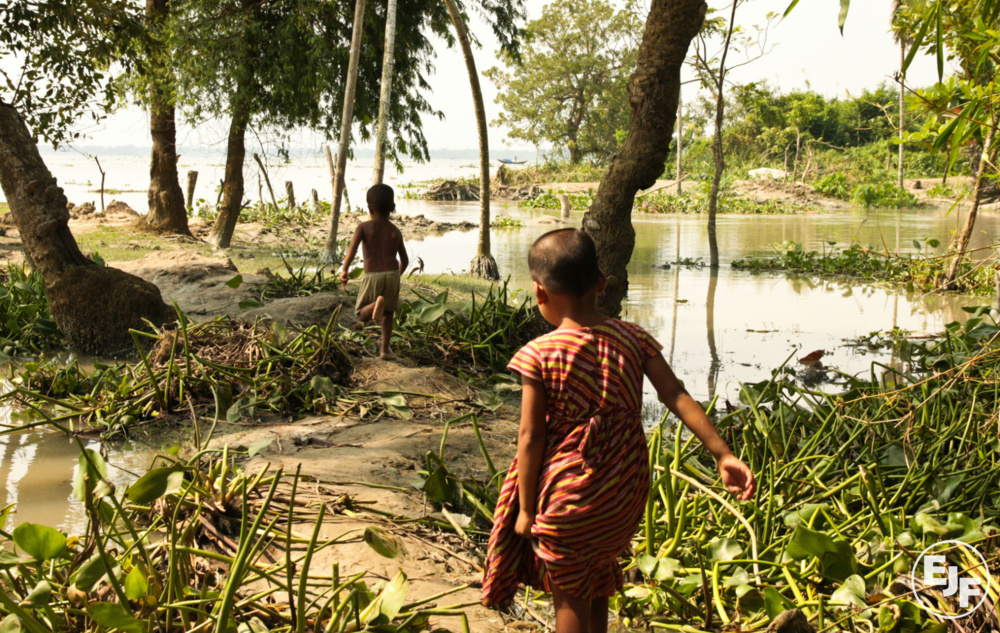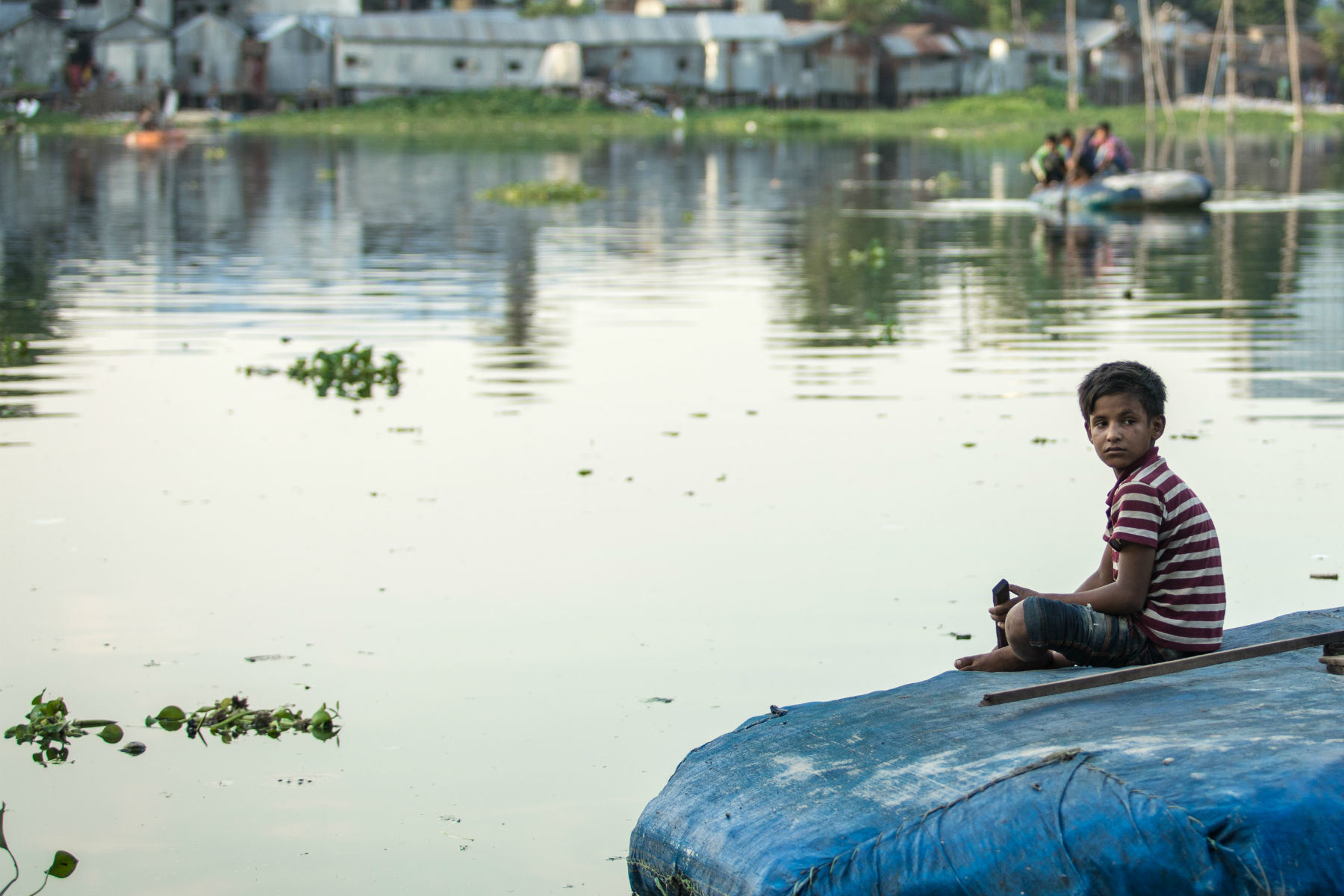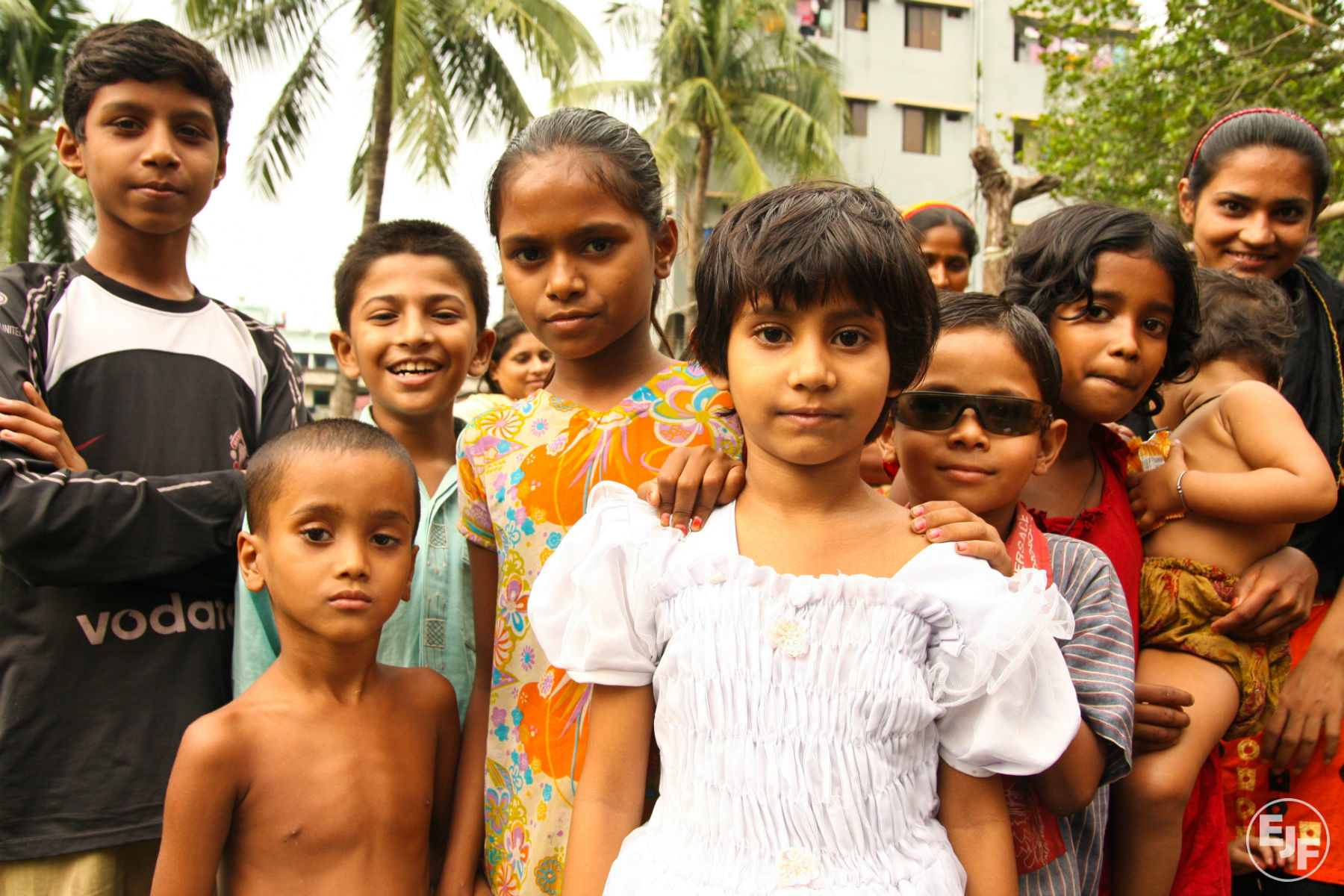
Push for climate justice intensifies in light of latest predictions
Climate change is both an environmental and human rights issue, it is set to cause immeasurable damage to both people and planet. And, to successfully combat this global, existential threat we must tackle both the human and environmental dimensions together.
EJF has been calling for urgent action on climate change, to protect the wildlife, natural environments and the most vulnerable people who are right now being affected.
Now, at last, we are beginning to see progress, as European Parliamentarians begin to adopt the leadership role we have so forcefully been calling for.
Last week we saw a great step forwards in developing crucial rights for climate refugees. Last week the Parliament took the first step to recognise climate refugees, by adopting a resolution on Women, Gender Equality and Climate Justice, recognising that climate change leads to displacement.
At the same time, new scientific research into the realities of global warming has confirmed how essential these rights will be. A new paper published in the highly respected journal Nature shows how important it is that we take action to prevent the worst effects of climate change from happening at all.
Worryingly, the most pessimistic predictions for global warming are likely to be the most accurate, according to the recent study. These results show that if we continue as we are there is a 93% chance that global warming will exceed 4°C above pre-industrial levels by the end of the century. This will unleash a damning series of impacts that will simply overwhelm countless tens of millions of people; destroying irreplaceable habitats, wiping-out entire species and devastating our global economy.
The scope and scale of the suffering that will ensue is hard to imagine, and perhaps because of this, is all too convenient to ignore.
4 degrees of warming must be a warning not a reality
If our global temperature rise is allowed to exceed 4°C by the end of the century the consequences will be unthinkable. Hundreds of millions will lose their homes and not just in the poorest developing nations, but globally, even in the most affluent Western economies.
If we fail so drastically to meet the goals of the Paris Agreement, which aims to keep warming to 1.5°C, vulnerable people and whole nation states will be put at risk.
Protecting people from the worst is essential
People are already suffering as a result of climate change. Climate change is happening now and it is creating climate refugees.
In 2016 extreme weather-related disasters displaced around 23.5 million people. Since 2008, an average of 21.7 million people were displaced each year by such hazards, the equivalent of 41 people every minute. This does not include the people having to leave as a consequence of slow-onset environmental degradation, such as droughts.
Climate justice entered into discussions last week as European leaders voted to recognise climate change as a cause of migration. An historic step. Climate refugees are not currently legally recognised, and have no legal rights. The vote in the European Parliament last week means that climate refugees will rise up the international agenda.
Delivering climate justice is a moral, economic, social and political priority.
This is the moment to remind leaders that they can speak up for climate refugees. EJF will be in the European Parliament this week to do just this.
Now it is time to start speaking about how we can protect those displaced by climate change and for the EU to take a leadership role in this on a global level. By signing our petition you can back up our call and show that you too are calling for justice for climate refugees.
In the EJF report, Beyond Borders, we present evidence showing that climate change is already causing the destruction of livelihoods, infrastructure and communities. Across the globe we see cases where the most vulnerable are being forced to flee their homes.
But we need to stop the worst from happening at all
The findings in Nature mean that if we want to stabilise the climate we need to make steeper cuts to greenhouse gas emissions than previously considered, the authors have warned.
If we do not step up and take action now, we are failing our most vulnerable people.
A coordinated effort on the part of all nations is needed to mitigate climate change and it is needed now. We can all play a part, working to reduce our own carbon footprints as well as demanding that governments and businesses fulfil their responsibilities, delivering the leadership and innovation that is essential if we are to avoid catastrophic outcomes.
Climate change is a problem for now and the future. We need to ensure that those already suffering the consequences of climate change are given the legal protection they need and deserve. At the same time we need to ensure that action is taken to prevent the dire warnings from becoming reality. Taking action on climate change means protecting the environment and human rights. At the same time.
SIGN UP FOR OUR EMAILS AND STAY UP TO DATE WITH EJF

